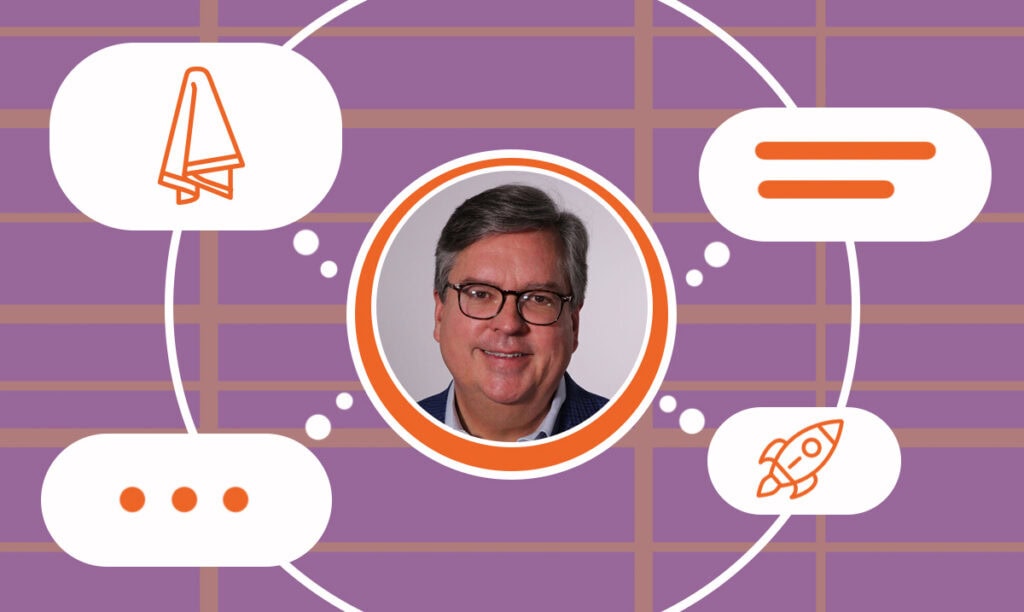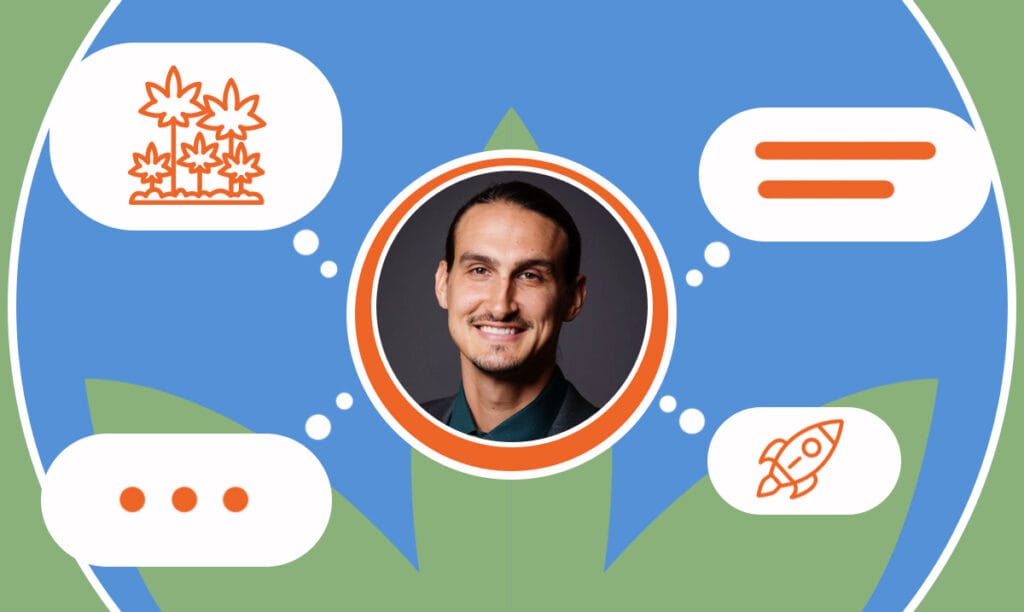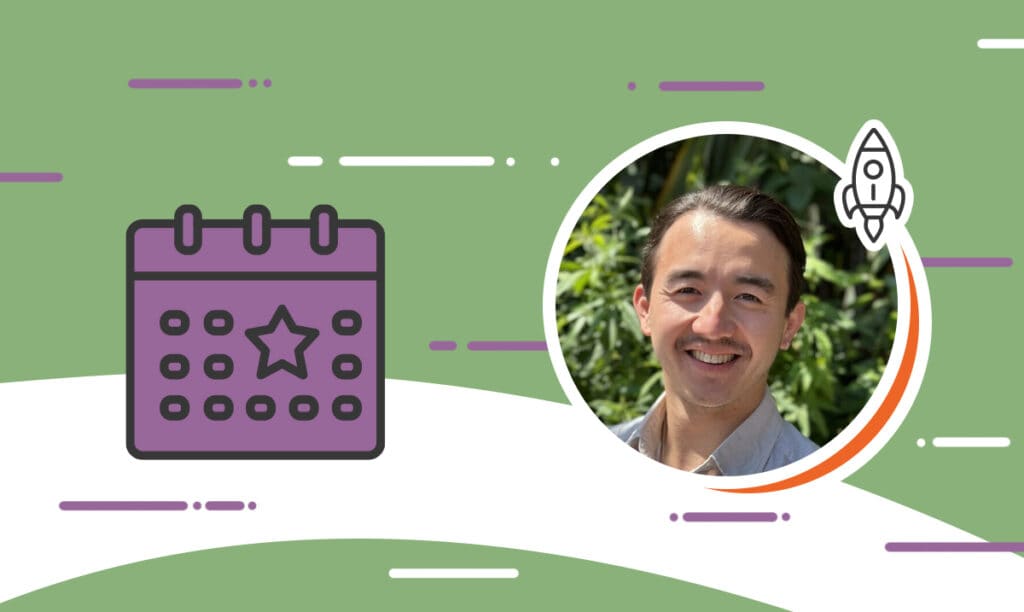Welcome to our conversation with Jacob Tannenbaum, co-founder and managing partner at Fresh Alternative Farms. With a unique blend of expertise inla ...
How The Sellars Family Built a Green Empire
Written by: Carolyn Young
Carolyn Young is a business writer who focuses on entrepreneurial concepts and the business formation. She has over 25 years of experience in business roles, and has authored several entrepreneurship textbooks.
Published on May 22, 2024

In this interview, we delve into the environmentally conscious world of Tom Sellars, CEO of Sellars Company. Founded in 1985 in Milwaukee, this pioneering enterprise specializes in a range of green consumer and commercial products made largely from recycled materials. From the innovative Bravo® kitchen towels to large-scale environmental initiatives, you can expect to learn about the challenges and triumphs of leading a sustainable business and the visionary strategies driving its success. Tom’s experience and commitment offer invaluable lessons for current and aspiring entrepreneurs in the green industry.
Origins of Sellars Company
SBS – What inspired the initial concept behind Sellars, especially the focus on green products?
Tom – My brother John established Sellars Absorbent Materials in 1985 in his garage when he identified a better absorbent product than the ones being used to absorb leaks, drips, and spills on factory floors.
While granular absorbents had been used for a long time, he knew they weren’t very effective or environmentally friendly since they were made from clay, a mined mineral. Plus, they had a whole host of negatives. They weren’t very absorbent, weren’t easy to clean up, were unsafe and could cause slips, were expensive on a cost-in-use basis, and the granules could get into machinery and cause damage. To solve those issues, he created absorbent “pads” and “socks” that could be put on floors and wrapped around machines to soak up leaks and drips and prevent the fluids from getting on the factory floor. We also expanded into booms and pads to clean up oil spills in the water.
In addition to making products that helped clean up the environment, we also focused on using natural and recycled materials in the manufacturing of our products. We then expanded into the much bigger market of dry wipes, shop towels/rags, and paper towels, using our proprietary technology to make high-performance products with recycled and natural materials.
I’m proud to say Sellars is a first-generation start-up with four siblings who each contributed greatly to the company’s success — John, who led sales & marketing and new products, Bill who led technology and manufacturing, Kathy, who led HR, and me, leading finance and the overall business. While John, Kathy, and Bill have retired from our business, their legacy continues.
Balancing Sustainability and Profitability
SBS – How do you ensure the balance between environmental sustainability and commercial viability in your product development?
Tom – We challenge our teams to use recycled and natural fibers to create industry-leading products. Our goal is to ensure that all our products are high-performing and perform as well as or better than the competing synthetic and virgin products. We want every Sellars product to deliver great performance while also being environmentally friendly.
Sourcing Recycled Materials
SBS – Can you describe the process of sourcing post-consumer materials for your products like Bravo® kitchen towels?
Tom – We have very experienced paper mill partners who source recycled fiber to our specifications. They purchase curbside waste, sorted office waste, and post-industrial waste from the collection/sorting companies on our behalf.
Innovating Bravo® Towels
SBS – What were the key challenges in developing Bravo towel’s unique features, like its compressed format and reusability?
Tom – Our proprietary paper-enhancing technology was initially developed using virgin cellulose pulp. We then pursued a vision to make our high-performance products with recycled materials. It was a big challenge over a long period of time to continually improve our technology and manufacturing processes to produce quality products with recycled materials without degrading performance.
As part of our environmentally friendly goals, we also focused on making our towels more compact to lessen the environmental impact and freight cost by delivering much more on a truck. This also provides retailers with better economies of sales per square inch on their shelves.
The challenge for us is that looks can be deceiving. Because of our compressed packaging, Bravo appears smaller on the shelf. However, with Bravo, what looks like less is actually more. Unfortunately, for decades, consumers have been trained to think that the bigger the roll, the more they get, since the industry has focused on selling more bulk with air and less product to improve their financial return. Our marketing challenge is to communicate that Bravo towels deliver twice the amount of product at the same price. It requires us to educate consumers so they understand that, even though our roll is smaller, it actually contains more product. With Bravo, we removed the “air bulk” in order to deliver more product.
In addition, Bravo has superior strength when wet, so consumers can rinse and reuse our towels. Selling a product where the consumer uses less than the competition is disruptive and it’s an economic twist because, with our reusable Bravo product, our customers can reduce their consumption. Innovation often requires explanation, so we are focused on marketing that educates consumers.
Quality Control with Recycled Materials
SBS – How do you maintain product quality and consistency using predominantly recycled and renewable materials?
Tom – We have rigorous quality standards and very specific production parameters for our proprietary paper produced at our paper mill partners and in our manufacturing at our production facilities.
Environmental Impact Assessment
SBS – How do you measure the environmental impact of your products, and what steps do you take to minimize this impact?
Tom – We measure the positive impact of utilizing recycled fiber and the use of our own paper wiper and towel paper production waste as the raw material for our absorbent products. We calculate the trees that are saved, the overall energy savings, and waste reduction.
Family Dynamics in Business
SBS – As a leader of a family business, how do you manage family dynamics in business decision-making?
Tom – Being a dedicated family business has strengths but also can be challenging on family relationships and the business. It is critical to have defined roles and clear expectations and metrics. When I joined my brothers full-time in 1999, we hired a family business consultant to help us with this process. Unlike most family businesses, I expanded the board to include outside board members, comprised of industry experts and successful CEOs, all of whom invested in our company. Our board approves our yearly budgets, key objectives, and family compensation.
Advice for Green Entrepreneurs
SBS – What advice would you give to entrepreneurs looking to start a green business in today’s market?
Tom – As a “green,” mission-driven business and not a “green” non-profit organization, it’s important to focus intensely on the intersection of economic and environmental sustainability to develop a business model that is financially sustainable. Make sure you have a product that doesn’t just “work” but “works well” because very few customers are willing to pay more for an inferior product. Make sure your mission will also bring you profitability because you can’t make an impact if you can’t keep your doors open. Have the perspective that you should only do what you can afford to do. Building your business is a marathon of continuous improvement. The percentage of startups that are still in business just five years later is quite low, so be equipped with equal parts of a good business plan, passion, and purpose to overcome those odds to be able to make a sustained difference. We’ve been at it for 39 years.
Future of Sustainable Manufacturing
SBS – How do you see the future of sustainable product manufacturing, and what role does Sellars play in it?
Tom – Many consumers are looking for ways to protect the planet by making simple changes. As a result, Sellars will keep growing as long as we continue to design and manufacture products that are both eco-friendly and high-performing. Sellars has invented a proprietary process to turn waste materials into viable products, and we look forward to communicating this to even more people. Sellars will continue to be mission-driven and will continue to be innovative and improve our products and manufacturing processes.
Impact of Environmental Advocacy
SBS – Can you share insights on how your experience with Concerts for the Environment (CFE) and r.Cup has influenced your approach to business sustainability?
Tom – Concerts for the Environment, a nonprofit organization, was successful in creating music events to educate, inspire, and raise awareness and money for the environment. We also were successful in expanding the number of people who were positive about the environment and wanted to make a difference.
I was the co-founder, volunteer chair of the board, and “groveler” to get musicians to play for free. My close college friend Michael Martin left investment banking to be the executive director. We believed that if the consumer cared about the environmental impact of their behavior, including the products they purchased, then companies would respond accordingly, which would have a major ripple effect.
Over the years, we have worked with more than 100 famous musicians, including Paul McCartney, Willie Nelson, Queen Latifah, and REM. However, we saw that changing consumer purchasing behavior happens very slowly. This type of change takes a long period of time. We realized that to accelerate and increase the magnitude of that change is when the economic and performance benefits are delivered as well. The consumer votes each time they buy the product.
r.World, the parent of r.Cup, was born from a mission of eliminating single-use plastic cups and serveware at live events, such as concerts, sports, and theater. There are about five billion cups used once and thrown away annually in the US. This was something that really frustrated the CFE executive director, Michael Martin, and me. Mike had the initial inspiration/idea to start the company with my support, which was launched with U2. He’s the CEO. I’m the board chair, and we’re both investors.
We started with more of a nonprofit mission but then worked hard to figure out a business model that could be profitable and, therefore, economically sustainable. Ironically, single-use plastic is so cheap that reuse is three times more expensive. We spent a lot of time improving our model but finally figured out how to fund the gap if the venue was not willing to do it. We charge the consumer an optional sustainability fee, and our experience, to my joy and relief, is that the consumer supports this. Without the education, care, and value system of the consumer, this would not have been possible.
Sellars Company’s Next Steps
SBS – Looking ahead, what are the next big goals for Sellars in terms of product innovation and environmental stewardship?
Tom – In 2024, we are excited to roll out our new Bravo paper towels, which are the best-performing paper towels overall. Bravo has by far the best strength when wet and can even be rinsed and reused. Unlike the three leading brands that are made from virgin pulp, Bravo paper towels are made from curbside recycled boxes and paper. With so many boxed products being shipped to consumers, the waste stream is inundated with boxes and half are going to landfills.
Customers using Bravo are empowered in two ways. They get a fantastic paper towel that cleans better, lasts longer, takes up less room on the shelf, and is competitively priced while helping the planet because they are made by repurposing curbside waste. Bravo paper towels are now available in over 300 Target stores across the country and online at Target.com. It’s a big deal for us, and we hope consumers will embrace this new, environmentally friendly product that will be the best paper towel they’ve ever used.
Subscribe to Our Newsletter
and gain insider access to cutting-edge business insights and trends.
Featured Resources

Jacob Tannenbaum on Sustainable Farming and Cannabis Innovation
Published on February 27, 2024
Read Now

How Zentive Agency is Redefining Sustainable Events
Published on November 9, 2023
Welcome to our interview with Dominic Richards, the visionary behind Zentive Agency — a trailblazing sustainable events agency rooted in the heart ...
Read Now
Comments